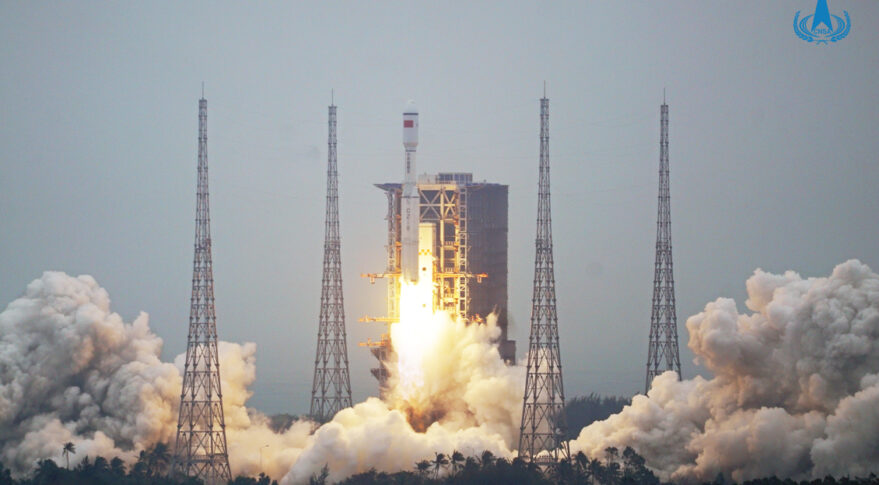
HELSINKI — The U.S. has sanctioned a Chinese small satellite manufacturer for allegedly supplying Russia’s Wagner Group with radar satellite imagery of Ukraine to support its combat operations.
Changsha Tianyi Space Science and Technology Research Institute, also known as Spacety, and its Luxembourg-based subsidiary are among a number of entities hit by sanctions as part of a move against the private paramilitary organization Wagner Group.
The Treasury Department announced sanctions targeting Wagner Group Jan. 26, designating it as a transnational criminal organization.
Spacety provided synthetic aperture radar (SAR) satellite imagery orders of locations in Ukraine to Terra Tech, a Russia-based technology firm, according to the Treasury Department’s Office of Foreign Assets Control.
“These images were gathered in order to enable Wagner combat operations in Ukraine,” the statement reads.
“Today’s expanded sanctions on Wagner, as well as new sanctions on their associates and other companies enabling the Russian military complex, will further impede Putin’s ability to arm and equip his war machine,” Secretary of the Treasury Janet L. Yellen said in a statement.
Spacety manufactures small satellites and is based in Changsha, Hunan province, with offices in Beijing and Luxembourg. It was founded in 2016 by former employees of the Chinese Academy of Sciences.
It is also working with the 38th institute of the giant state-owned enterprise China Electronics Technology Group (CETC) to build a 96-satellite “Tianxian” SAR constellation.
Spacety has so far launched two small C-band SAR imagery satellites, namely Hisea-1 in December 2020 and Chaohu-1 in February 2022, the latter for the Tianxian project.
Its latest satellite, Beiyou-1 (BUPT-1), was launched Jan. 15 and developed for the Beijing University of Posts and Telecommunications and also carried science payloads for the academic Tiange astrophysics project.
Spacety has been looking to work with companies all around the world, even considering launching on Indian rockets to allow it to work with partners restricted from flying on Chinese launchers.
China and Russia have developed closer relations in recent years. China has attempted to act in a neutral role following Russia’s invasion of Ukraine, and previous reports suggest it has been adhering to U.S. and European sanctions imposed on Russia.
China last year omitted any mention of Russia when presenting its lunar exploration plans as open for cooperation at the International Astronautical Congress in Paris, despite Russia being a partner in the planned International Lunar Research Station (ILRS) project.
China has raised concerns over the use of U.S. commercial satellite constellations in the Ukraine conflict, including communications via SpaceX’s Starlink satellites but also imagery from companies such as Maxar.
The People’s Liberation Army Daily, the official newspaper of China’s military forces, ran a commentary (Chinese) in April 2022, noting that companies such as Maxar and Black Sky provided satellite imagery of Russian troop movements to Ukraine.
The commentary claims the U.S. has in recent years been “promoting the construction of so-called ‘space resilience’, attempting to blur the boundary between military and civilian spheres,” bringing commercial entities and the general public into the space arms race in order to strengthen its dominant position in space.